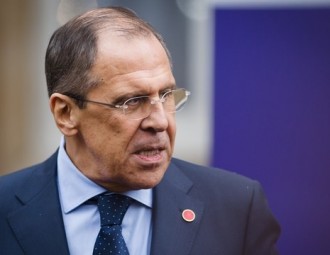Sergey Lavrov doesn’t believe in color revolution in Belarus

Any attempts to destabilise the internal political situation there are unlikely to be supported by the majority of Belarusian citizens, Russian Foreign Minister believes.
“Evidence of this are the results of the presidential elections held last October, during which Belarusians spoke for internal political stability and for stronger ties with Russia, including in the framework of the Union State and Eurasian Economic Union,” – stated Sergey Lavrov in the interview with Italian magazine Limes, published on February 4, 2016 at the website of the Ministry of Foreign Affairs of the Russian Federation.
He is convinced that “any export of communist, democratic or any other revolutions greatly damages the people of the countries where such experiments are staged.” “This practice is a major violation of international law, one that seriously undermines global and regional stability,” – the minister said.
Lavrov finds it vital “to reaffirm the principle of non-interference in the internal affairs of countries as was laid down in the UN Charter and the Final Act of the Conference on Security and Cooperation in Europe, including the unacceptability of subversive actions and support for the unconstitutional change of government in other countries.” “We believe that the Helsinki+40 process in the OSCE has paved the way for continuing serious discussions on this issue and on an entire range of issues pertaining to European security,” – he said.
-
03.01
-
07.10
-
22.09
-
17.08
-
12.08
-
30.09








































